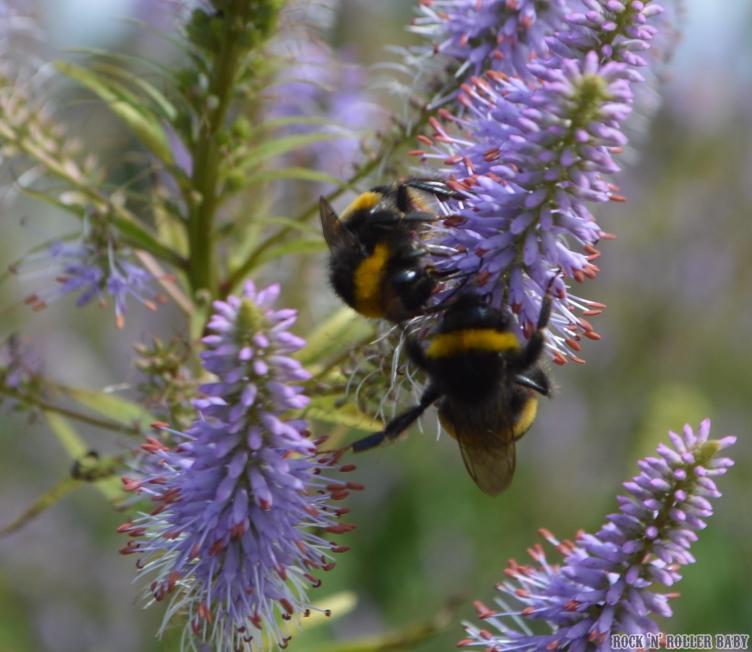How to Combat Common Garden Pests

Gardening is a relaxing and rewarding hobby that many use to combat anxiety, bring beauty to their home, and an additional food source to their kitchen. However, when pests take over your garden, the peace you once found in your hobby quickly turns into stress. If pests are not eradicated quickly, the time and money put into your plants may have been nothing more than practice for the next season.
Keep reading to find out how to combat common garden pests quickly and effectively.
Are Pests Your Problem?
Before looking into pest control, it is important that you know they are the culprit of your plant’s damage.
Nutritional deficiencies, planting out of season, dehydration, and improper sun exposure can also have a large impact on plant health.
Nutritional Deficiencies
Plants that are lacking nutrients can be identified quite easily. These plants often have yellowing leaves, yellow, brown, purple, or red leaf edges, or marks that look like burns.
Planting Out Of Season
If your plants are not maturing according to their estimated time frame, you may think pests are to blame. Often, the reason for your plants not maturing is that they were planted out of season. Before planting a seed, verify your growing zone and check the back of the seed packet for planting instructions.
Dehydration
If your plant’s leaves are drooping, shriveling, wrinkled, or the tips are browning, your plant may need to be watered more frequently. Conversely, these symptoms also signify over watering, so be sure to check watering instructions before making alterations to your routine.
Improper Sun Exposure
Plants that are leaning, growing slowly, have smaller than normal leaves, or thin stems may not be receiving enough sunlight. Plants with leaves that look bleached, burned, crispy, or drooping may be caused by too much sunlight.
Combating Common Garden Pests
If you have determined that pests are your problem, or you have yet to plant and are being proactive, many pest control systems can be implemented into your garden.
Use a Grow Tent
Grow tents are most frequently used for marijuana plants but can be used for any plant.
A grow tent is easily one of the most effective anti-pest tools you can use to keep your plants safe. These tents are fully enclosed with zipping doors meaning that only you can gain access to your garden.
If you choose to use a grow tent, artificial lighting sources, and airflow will need to be incorporated to ensure the plants grow big and strong.
Attract Their Prey
Not all insects wreak havoc on your plants, In fact, many are essential to their growth and can be used to keep harmful pests away.
Spiders, ladybugs, and butterflies feed on insects like aphids and spider mites, which are known to rapidly cause mass destruction in a garden when present.
Sunflowers, hollyhocks, and monstera plants attract spiders, and geraniums, zinnias, and marigolds will attract ladybugs and butterflies who will eat pests and pollinate your garden.
Try Safe Insecticides
Contrary to popular belief, some insecticides are non-toxic and safe to use in your garden.
Safe insecticides are generally all-natural substances or mixtures that you can make or grab from a home improvement store. The most effective products are diatomaceous earth, neem oil, spinosad spray, garlic spray, chili pepper spray, and essential oil sprays.
Plant Herbs
Understandably, you may not want to use any chemicals in your garden no matter how safe they may be. If that is the case, you can use mint, rosemary, basil, lavender, and chives as natural pest deterrents.
These herbs have naturally occurring terpenes such as linalool and alpha-pinene which insects have the scent of. Add these herbs to the border of your garden to act as a barrier, and place a few within it, and you will see a significant decrease in pest damage.
Add Fencing
Fencing won’t keep out insects, but it will keep out large pests like deer and rabbits.
If small animals are getting into your crops, you can use fencing around the garden. However, if larger animals or ones that can jump over the fence are an issue, then you may want to build fencing that has a removable top.
The fencing you choose should not be solid such as chicken wire, otherwise your plants may not receive enough sunlight.
Use Garden Fabric
Garden fabric, also known as landscape fabric or weed block cloth is a thin black or green fabric or tan burlap that is laid under the soil in your garden.
This fabric is useful because it blocks the infiltration of unwanted weeds and insects from entering the garden from below. Garden fabric is most beneficial when used in addition to planting herb repellents as a border.

 Follow
Follow